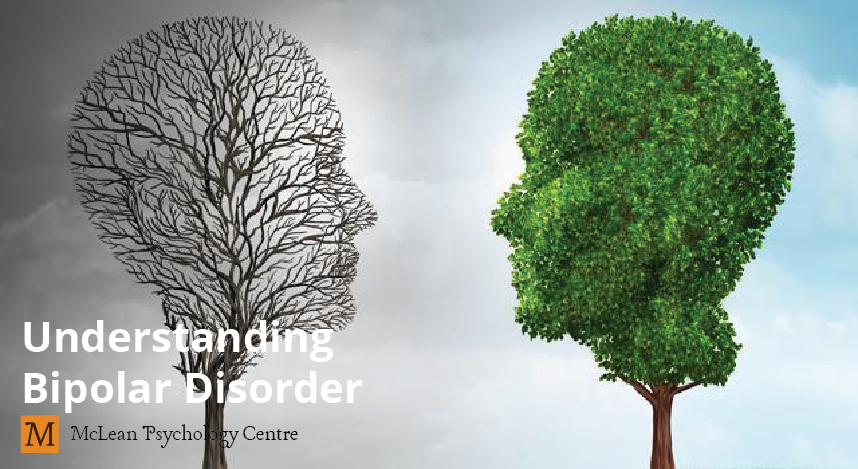As with many mental illnesses, Bipolar Disorder is widely misunderstood. In casual conversation, people will often refer to someone who is moody as being “a little Bipolar”, or mock people with lots of energy as being “manic”, or write off someone’s behaviour as being “off their meds”.
This leads to a severe stigmatization for those living with Bipolar Disorder, as they are often thought of as being unstable and irrational.
Understanding Bipolar Disorder begins with its categorization as a mood disorder. Bipolar Disorder isn’t a weakness – it’s a medical condition like a heart condition. It affects nearly 2 million people in the U.S., and nearly 900,000 in Canada.
People with Bipolar Disorder experience periods of both depression and mania or hypomania. During periods of depression, they will experience feelings of hopelessness, worthlessness, guilt, anxiety, and sadness for long periods of time. During periods of mania, they will experience elevated mood, feelings of power, confidence, happiness, and hyperactivity. They may require less sleep and engage in high-risk behaviours, such as a spending spree.
There are three main types of Bipolar Disorder:
- Bipolar I disorder: Causes periods of mania that alternate with depressive episodes. These fluctuations may last days, weeks, or months.
- Bipolar II disorder: Causes periods of depression that alternate with hypomanic episodes. Hypomania is a less severe form of mania.
- Cyclothymia: Causes frequent mood fluctuation, but to a much milder degree than Bipolar I or II (with 4 or more mood episodes over a 1-year period).
Studies have shown that those with Bipolar Disorder often earn lower wages, have higher unemployment, higher divorce rates, and are more likely to unstable housing situations than the average person. They are also more likely to have substance abuse problems, making them more likely to have arrests or criminal records.
Bipolar Disorder can make a person feel as though they have no control over their life, but it is important to focus on the future. Bipolar Disorder is treatable with medication and psychotherapy. Finding a good therapist is key to managing the Disorder and regain control.
If someone in your life is Bipolar, educating yourself is one of the best things you can do to support them. Understanding that Bipolar Disorder is not rare, and that it is more than mood swings is essential to helping you handle the ups and downs of this mood disorder, and to helping your loved one manage their symptoms.
Bipolar Disorder affects many lives, in many ways. If you or someone you love is struggling with Bipolar Disorder, McLean Psychology Centre can help. Book a consultation today to find out more.







